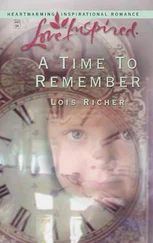Alexander Todd - A Time to Remember
Здесь есть возможность читать онлайн «Alexander Todd - A Time to Remember» весь текст электронной книги совершенно бесплатно (целиком полную версию без сокращений). В некоторых случаях можно слушать аудио, скачать через торрент в формате fb2 и присутствует краткое содержание. Город: Cambridge, Год выпуска: 1983, ISBN: 1983, Издательство: Cambridge University Press, Жанр: Химия, Биографии и Мемуары, на английском языке. Описание произведения, (предисловие) а так же отзывы посетителей доступны на портале библиотеки ЛибКат.
- Название:A Time to Remember
- Автор:
- Издательство:Cambridge University Press
- Жанр:
- Год:1983
- Город:Cambridge
- ISBN:0 521 25593 7
- Рейтинг книги:3 / 5. Голосов: 1
-
Избранное:Добавить в избранное
- Отзывы:
-
Ваша оценка:
- 60
- 1
- 2
- 3
- 4
- 5
A Time to Remember: краткое содержание, описание и аннотация
Предлагаем к чтению аннотацию, описание, краткое содержание или предисловие (зависит от того, что написал сам автор книги «A Time to Remember»). Если вы не нашли необходимую информацию о книге — напишите в комментариях, мы постараемся отыскать её.
A Time to Remember — читать онлайн бесплатно полную книгу (весь текст) целиком
Ниже представлен текст книги, разбитый по страницам. Система сохранения места последней прочитанной страницы, позволяет с удобством читать онлайн бесплатно книгу «A Time to Remember», без необходимости каждый раз заново искать на чём Вы остановились. Поставьте закладку, и сможете в любой момент перейти на страницу, на которой закончили чтение.
Интервал:
Закладка:
Since the adoption of the Haldane Report at the time of the First World War, responsibility for scientific research had been with the Research Councils and the Department of Scientific and Industrial Research. These bodies, together with the Nature Conservancy, were directly controlled by Privy Council Committees. The Lord President of the Council was, therefore, in effect a Minister for Science, and this was recognised in the reference to his 'responsibilities for the formulation and execution of Government scientific policy' in the terms of reference of the Advisory Council on Scientific Policy, to which I have earlier referred. Taken at its face value, the statement about the appointment of a Minister for Science might have seemed to complicate the problems of science policy, but it did not in practice do so. Lord Hailsham, the then Lord President of the Council, simply assumed the additional title of Minister for Science. Although there appeared thus to be no change in the situation, the additional title had the merit of emphasising the importance of science as a factor in government.
By 1962, however, the feeling was widespread, that Britain was not keeping pace with technological innovation in industry, perhaps because of the very minor role we were playing in space exploration which was the glamour subject in those days. As a result, the government set up a Committee of Enquiry into the Organisation of Civil Science under the chairmanship of Sir Burke Trend, Secretary to the Cabinet. This Committee, of which I was a member, reported in 1963. It clarified, and strengthened, the position of the Minister for Science, separating the Research Councils from the Lord President's jurisdiction, and calling for the establishment, in parallel with them, of an Industrial Research and Development Authority, to promote applied research and industrial innovation. Whether the proposals of the Trend Report were wise or not we will never know, for they were overtaken by political events, and were never implemented. In 1963, Government amalgamated responsibility for science and education (including higher education) in a single Department of Education and Science headed by a Secretary of State and with two Ministers of State, one of whom was responsible for science. This in itself was, to my mind, a retrograde step, but it was made much worse when, upon the assumption of power in 1964 by a Labour government with its naive talk of a 'white-hot technological revolution', the whole set-up was again altered. Science and technology were separated, the former remaining with the Department of Education and Science, and the latter transferred to a new Ministry of Technology with its own Advisory Council. The Advisory Council on Scientific Policy was abolished, and a new, and virtually powerless, body called the Council for Scientific Policy was established. The Council for Scientific Policy was dissolved some years later, and its only real function - to advise upon the apportionment of the science vote among the Research Councils - was transferred to a new body, the Advisory Board for the Research Councils (A.B.R.C). The Ministry of Technology itself had only a short life, and was soon dissolved, its functions being distributed among several other Departments. The adverse effect of these changes was in a measure offset by the appointment of a Chief Scientific Adviser in the Cabinet Office. The post of Chief Scientific Adviser in which Sir Solly (now Lord) Zuckerman was succeeded by Sir Alan Cottrell, lasted for about ten years, being finally abolished in 1974. The changes made by the Labour government in the mid-sixties were, in my view, a disaster for science in its relation with government, from which we are still trying to recover. The provision of first-class scientific and technological advice - for the two cannot be separated - is essential for the formulation of government policy in an ever-increasing number of national and international issues. In Britain, we began with a highly centralised system for its provision, in the shape of the Advisory Council on Scientific Policy. That Council did not, perhaps, achieve all that had been hoped for, primarily because it lacked the 'back-up' of a good secretariat, and did not always have access to all the information it needed. In my view, however, the decentralisation, and indeed fragmentation, which has followed on the demise of A.C.S.P. has not been successful and a return to something nearer to the old system is badly needed.
The year 1962 was largely given over to chemistry and affairs in Britain, but it also brought an entirely unexpected personal honour in the shape of a Life Peerage, which I accepted. The acceptance was not without its lighter side, for before the barony could be gazetted I had to report at the College of Arms and decide on my title. Since I was well known up and down the world by my family name, and had published all my scientific work under it, I was determined that my title should be simply Todd. Life Peerages were still a novelty in those days, and the College of Arms had not yet got accustomed to people using their own names rather than adopting a territorial designation. The Garter King was clearly anxious to revive Trumpington, which had not been used in a title since the time of the Crusades, and which would be appropriate, since I lived in Trumpington parish; after a struggle I prevailed, and became the Baron Todd of Trumpington in the County of Cambridge. The next problem was my coat of arms; I wanted to use, essentially, the unregistered shield (a chevron with three fox heads) and motto (Faire sans dire) used by the Todd family at one time in Scotland. Subject to one modification - the substitution of a 'serpent embowed biting its tail' for one fox head - this was accepted by the Clarenceux King of Arms and registered. The Clarenceux King was anxious to include some symbol for my hobby, but I explained that I had no outstanding hobby which I would wish to include.' Ah,' he said, 'you are probably one of those men whose hobby is work. Odd, isn't it? I doubt if I have ever done a proper day's work in my life.' The various formalities being over, I was formally introduced into the House of Lords in the summer of 1962 by two old scientific friends, Lord Adrian and Lord Fleck, and took my place on the cross-benches as an independent, bearing no party allegiance. Since I entered the House, there has been a marked growth in the number of Life Peers - and with it a growth in the number of cross-benchers such that they are now a significant force in the work of the House. In recent years there has been much discussion about the future of the House of Lords. No doubt some reform is necessary, but I am against abolition. I believe that in a parliamentary democracy a second chamber is necessary; the second chamber should have a largely advisory function, and should exert its influence on the lower house through the special qualifications and experience of its members. To do so I believe it should not be an elected body, but rather a body of experts, and not one conducted on party political lines. It seems to me that, however archaic the titles and trappings may seem, a properly operated Life Peerage system provides as good a way as any to achieve this; the hereditary system is indefensible, and should be allowed to lapse.
In the late fifties and early sixties, I had a number of discussions with Dr Albert Wettstein and some other members of the Board of Directors of Ciba Ltd, the Swiss chemical firm, about the promotion of postgraduate student exchanges between Europe and the United Kingdom, to offset the ever growing drift of young scientists from both to the United States for postdoctoral experience; this led to the setting up of the Ciba Fellowship Trust, which successfully developed this idea, and whose action in this respect has been widely copied. Another topic we discussed, which was promoted largely by Wettstein, and put into operation by the Ciba Board, was to tap the undoubted research potential among young Indian chemists, by setting up a research institute under the wing of their Indian subsidiary in Bombay, but with a great deal of freedom as regards research programmes in the pharmaceutical field. By early 1963 the building of the institute at Goregaon near Bombay was complete, Professor Govindachari, an old friend from Madras installed as Director, and all was ready for an official opening by Prime Minister Nehru. This was set for March 1963 and as part of the occasion a special meeting was arranged in Bombay where lectures were to be given by six invited speakers - Vlado Prelog and Alexander von Muralt from Switzerland, Sir George Pickering and myself from the United Kingdom, R. B. Woodward from the United States, and Professor Venkataraman, Director of the National Chemical Laboratory at Poona.
Читать дальшеИнтервал:
Закладка:
Похожие книги на «A Time to Remember»
Представляем Вашему вниманию похожие книги на «A Time to Remember» списком для выбора. Мы отобрали схожую по названию и смыслу литературу в надежде предоставить читателям больше вариантов отыскать новые, интересные, ещё непрочитанные произведения.
Обсуждение, отзывы о книге «A Time to Remember» и просто собственные мнения читателей. Оставьте ваши комментарии, напишите, что Вы думаете о произведении, его смысле или главных героях. Укажите что конкретно понравилось, а что нет, и почему Вы так считаете.










